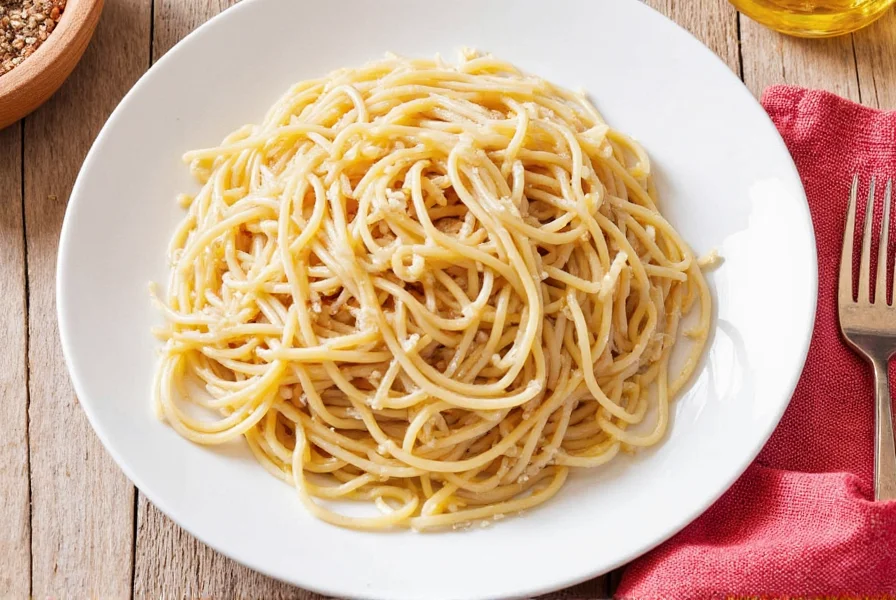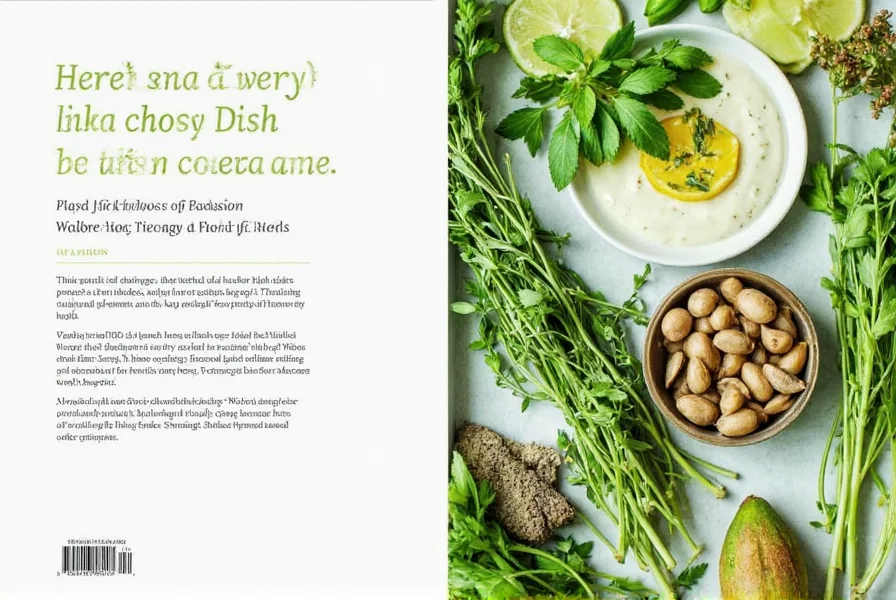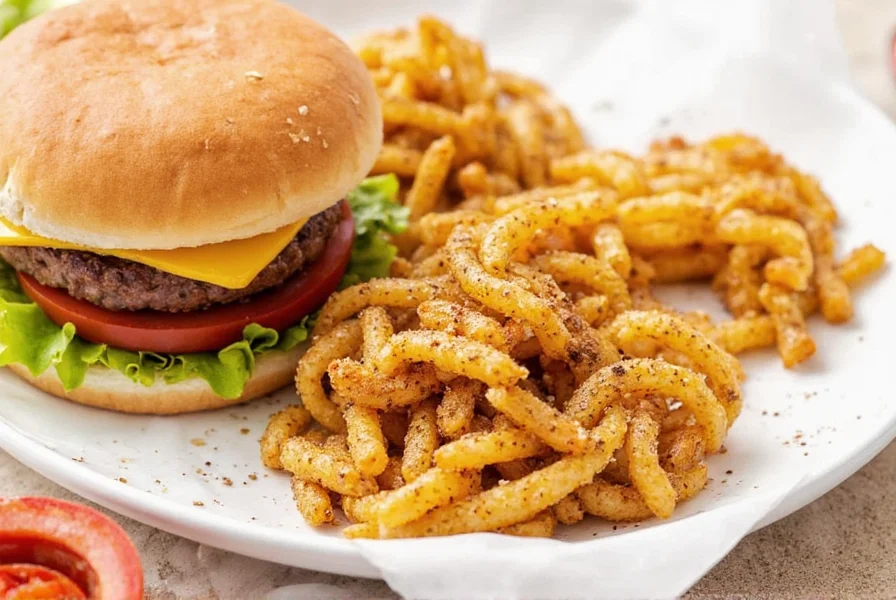Table of Contents
Step-by-Step Seasoning Process
Perfectly seasoning spaghetti requires precise timing and balanced ingredients. Follow these 5 essential steps for restaurant-quality flavor every time:
- Salt the water properly: Add 1-2 tablespoons of kosher salt per gallon of water once it reaches a rolling boil. This seasons the pasta from within, creating better flavor absorption than salting after cooking.
- Cook pasta al dente: Boil pasta for 1-2 minutes less than package instructions. Reserve 1 cup of pasta water before draining. The starch in the water helps bind the sauce.
- Sauté aromatics: In a separate pan, heat 2-3 tablespoons of extra virgin olive oil over medium heat. Add minced garlic (2-3 cloves) and sauté for 30 seconds until fragrant. Do not brown the garlic.
- Add herbs at the right time: For dried herbs like oregano or basil, add them to the sauce 5 minutes before finishing to release flavors. For fresh herbs like parsley or basil, add them in the last 30 seconds to preserve freshness.
- Finish with cheese and oil: Toss the cooked pasta with the sauce, adding reserved pasta water as needed. Finish with freshly grated Parmesan cheese (1/4 cup per serving) and a drizzle of high-quality olive oil.

Key Ingredients for Perfect Spaghetti Seasoning
Understanding the role of each ingredient is crucial for balancing flavors. Here's what you need:
Salt
Salt is the foundation of seasoning. Use kosher salt for better control of salinity. The right amount is 1-2 tablespoons per gallon of water. Too little salt makes pasta taste bland, too much makes it inedible.
Herbs
Herbs add depth and complexity. Use dried herbs for cooking (they release flavor slowly) and fresh herbs for finishing (they add bright, fresh notes).
Olive Oil
Use extra virgin olive oil for its rich flavor. It's not just for cooking; a drizzle at the end enhances the dish's richness.
Garlic
Garlic is essential for Italian dishes. Sauté it gently to avoid bitterness. Use 2-3 cloves per serving for balanced flavor.
Parmesan Cheese
Authentic Parmigiano Reggiano adds umami richness. Grate it fresh for best flavor. Avoid pre-grated cheese with anti-caking agents.

Common Mistakes to Avoid
Even experienced cooks make these seasoning errors. Avoid them for perfect spaghetti:
- Adding salt after cooking: Salt must be in the boiling water to penetrate the pasta. Adding it later only seasons the surface.
- Overcooking pasta: Pasta continues cooking after draining. Al dente texture ensures proper sauce absorption.
- Burning garlic: Garlic burns quickly at high heat. Sauté on medium-low heat for 20-30 seconds only.
- Adding fresh herbs too early: Fresh herbs lose their vibrant flavor when cooked too long. Add them at the very end.
- Using low-quality olive oil: Cheap olive oil has weak flavor. Choose extra virgin with a fruity, peppery finish.
| Herb | Dried (for 4 servings) | Fresh (for 4 servings) | Best Use |
|---|---|---|---|
| Basil | 1 tsp | 1 tbsp | Add at the end for fresh flavor |
| Oregano | 1 tsp | 1 tbsp | Add early in cooking for deeper flavor |
| Rosemary | 1/2 tsp | 1 tsp | Best for meat sauces, add early |

Frequently Asked Questions
When should I add salt to my spaghetti water?
Add salt to your pasta water once it reaches a rolling boil, about 1-2 tablespoons per gallon of water. This seasons the pasta from within as it cooks, creating better flavor absorption than salting after cooking.
What's the conversion ratio for dried to fresh herbs in spaghetti?
Use a 3:1 ratio—1 teaspoon dried herbs equals 1 tablespoon fresh herbs. Dried herbs have concentrated flavor since moisture is removed, so you need less than fresh varieties for equivalent seasoning.
What are the essential seasonings every spaghetti should have?
The absolute essentials are salt, black pepper, garlic, extra virgin olive oil, and Parmesan cheese. For tomato-based sauces, add dried oregano and fresh basil. These create the foundational flavor profile that defines authentic Italian spaghetti.
How do I fix bland spaghetti sauce?
First, add salt in small increments while tasting. Next, incorporate acidity with a splash of red wine vinegar or lemon juice. For depth, sauté additional garlic in olive oil and mix in. Finish with fresh herbs and a Parmesan rind simmered in the sauce for 10 minutes to add umami richness.
What's a good vegan alternative to Parmesan for spaghetti?
Combine 1/2 cup raw cashews, 2 tablespoons nutritional yeast, 1/4 teaspoon garlic powder, and 1/4 teaspoon salt in a food processor. Pulse until resembling coarse crumbs. This mixture provides the nutty, umami flavor of Parmesan without dairy while adding valuable protein to your dish.
Conclusion
Seasoning spaghetti isn't about adding more ingredients—it's about precise timing and balanced flavors. By mastering salt levels, herb application, and ingredient quality, you'll transform simple pasta into an unforgettable dish. Remember: the best seasoning comes from understanding each component's role and applying it at the perfect moment.










 浙公网安备
33010002000092号
浙公网安备
33010002000092号 浙B2-20120091-4
浙B2-20120091-4